Politics
Japan prince comes of age amid looming succession crisis
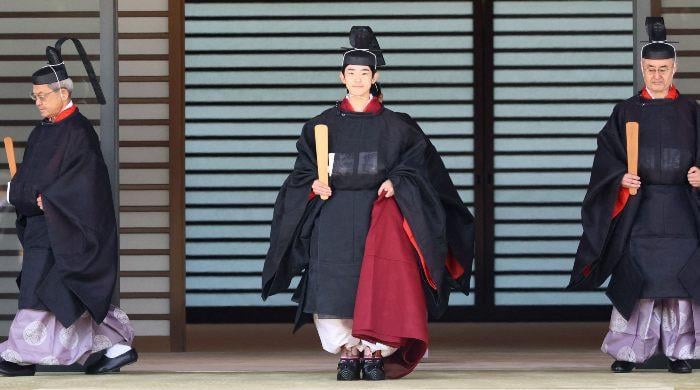
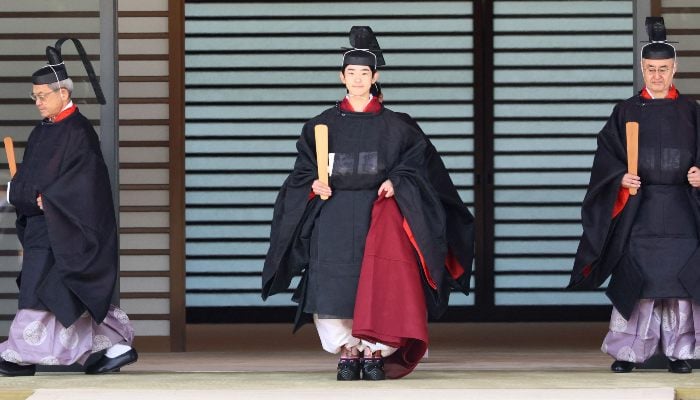
TOKYO: Japan on Saturday heralded the coming-of-age of Prince Hisahito with an elaborate ceremony at the Imperial Palace, where a succession crisis is brewing.
The nephew of Emperor Naruhito, Hisahito received a black silk and lacquer crown at the ceremony, which marks the beginning of his royal adult life.
“Thank you very much for bestowing the crown today at the coming of age ceremony,” Hisahito said.
“I will fulfil my duties, being aware of my responsibilities as an adult member of the imperial family.”
Although the emperor has a daughter — Princess Aiko — the 23-year-old has been sidelined by the royal family’s male-only succession rules.
“As a young member of the Imperial Family, I am determined to fulfil my role,” Hisahito said in March.
Second in line to become emperor after his father, the 19-year-old will appear at the Tokyo palace to pay his respects to gods and ancestors.
Although tradition dictates only a man can carry on the imperial line — which goes back 2,600 years according to legend — opinion polls have shown high public support for a woman taking the throne.
“It makes no difference to me whether a woman becomes the emperor or a man does,” said Tokyo bartender Yuta Hinago.
The 33-year-old felt there could be “room for more flexibility” in the succession rules.
Japan has debated the royal succession for decades, with a key government panel in 2005 recommending that it pass to the oldest child regardless of their sex.
That appeared to pave the way for the emperor’s daughter to rise to the Chrysanthemum Throne, but Hisahito’s birth the following year silenced the debate.
Politicians have been slow to act, “kicking the can down the road,” and delaying a solution with youthful Hisahito in view, said Kenneth Ruoff, director of the Centre for Japanese Studies at Portland State University.
Traditionalists have asserted that the “unbroken imperial line” of male succession is the foundation of Japan, and major changes would divide the nation.
Under the post-war constitution, the royal family holds no political power.
Pressure on women
With royal daughters forced to leave the family after marriage, one modernising proposal would see them continue their public duties after their nuptials.
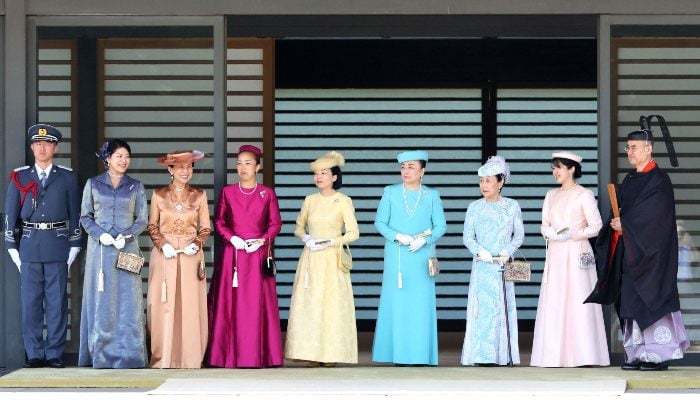
Conservatives, meanwhile, are pushing for the royal household to bring distant relatives back to the fold.
But it is unclear if those men would be willing to give up their careers and freedom to continue the lineage.
Hisahito said this year he has “not yet thought deeply” about his own marriage prospects, which could be challenging.
Historically, women who wed royals have faced intense pressure to produce sons and have become constant subjects of gossip.
Empress Masako, a former high-flying diplomat, struggled for years with a stress-related illness after joining the household, which some have put down to the pressure to have a boy.
Emperess Emerita Michiko, Naruhito’s mother, also suffered stress-induced illnesses.
Hisahito’s sister, Mako, married her university boyfriend Kei Komuro.
She has faced intense tabloid reporting over claims that Kei’s family had run into financial difficulties, leading the former princess to develop complex post-traumatic stress disorder. The couple left for the United States, where they recently had a baby.
Other members of the royal family are regular subjects of online and media gossip.
Despite broad public support for changing the succession rules, away from the pageantry, people are focused on other issues, such as rising inflation, royal historian Hideya Kawanishi told AFP.
“If people who are generally supportive (of women emperors) become a bit louder, then politicians can become more serious,” said Kawanishi, an associate professor at Nagoya University.
“But when ceremonies end, society, including the media, calms down and moves on.”
Politics
Pakistan joins OIC, other nations in rejecting Israel’s recognition of Somaliland
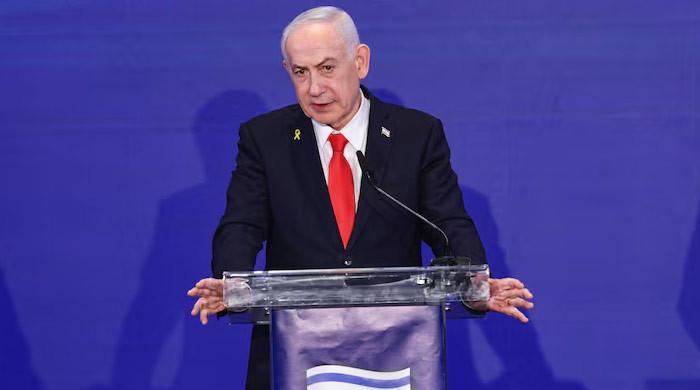
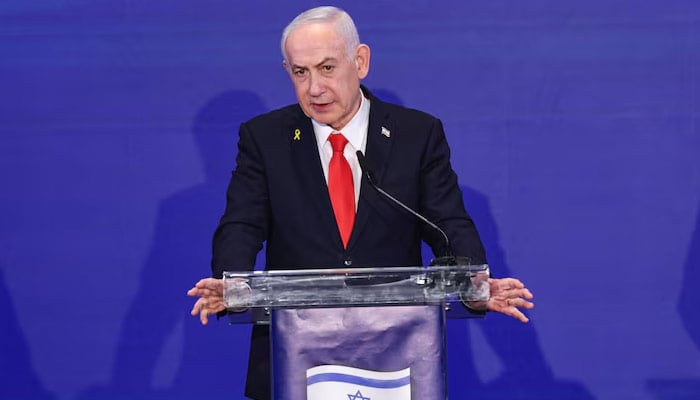
- Muslim countries’ joint statement back Somalia’s sovereignty.
- Express grave concern over recognition of parts of states.
- Statement also dismisses attempts to forcibly expel Palestinians.
The Organisation of Islamic Cooperation (OIC) and other countries, in a joint statement issued on Sunday, slammed Israel’s recognition of Somaliland, terming it a threat to international peace and security.
The joint statement, backed by Pakistan, Saudi Arabia, Turkiye, Iran, Egypt, Qatar and others, highlights the serious repercussions of such an unprecedented measure on peace and security in the Horn of Africa, the Red Sea, and its serious effects on international peace and security as a whole, which also reflects Israel’s full and blatant disregard to international law.
The joint statement comes against the backdrop of Tel Aviv’s becoming the first country to formally recognise the self-declared Republic of Somaliland as an independent and sovereign state.
Israeli Prime Minister Benjamin Netanyahu said Israel would seek immediate cooperation with Somaliland in agriculture, health, technology and the economy.
In a statement, he congratulated Somaliland’s president, Abdirahman Mohamed Abdullahi, praised his leadership and invited him to visit Israel.
Netanyahu said the declaration was “in the spirit of the Abraham Accords, signed at the initiative of President Trump”.
Meanwhile, Abdullahi said in a statement that Somaliland would join the Abraham Accords, calling it a step toward regional and global peace.
However, the Muslim countries’ joint statement today terms Israel’s recognition “a grave violation of the principles of international law and the United Nations Charter, which explicitly stipulates the imperative of protecting the sovereignty of states and their territorial integrity, and reflects Israel’s expansionist”.
Backing Somalia’s sovereignty, the joint statement unequivocally rejects “any measures that undermine the unity of Somalia, its territorial integrity or its sovereignty over its entire territory”.
“The recognition of parts of states constitutes a serious precedent and threatens international peace and security, and violates the cardinal principles of international law and the UN Charter,” it read.
Furthermore, the statement dismisses “any potential link between such measure and any attempts to forcibly expel the Palestinian people out of their land,” which it said is unequivocally rejected in any form as a matter of principle.
A day earlier, the Foreign Office (FO) had also denounced Israel’s announcement recognising the independence of the so-called Somaliland region of the Federal Republic of Somalia.
Politics
Winter weather in US Northeast leads to thousands of flight delays, cancellations


- Airline flight cancellations, delays mount.
- Up to a foot of snow fell in New York state.
- Officials warn of treacherous road conditions.
NEW YORK: A mix of snow and ice bore down on the US Northeast early on Saturday, disrupting post-holiday weekend airline traffic and prompting officials in New York and New Jersey to issue weather emergency declarations even as the storm ebbed by mid-morning.
People in much of the Northeast were advised to stay off the roads because of treacherous conditions, with states of emergency declared in New York and New Jersey.
“The safety of New Yorkers is my top priority, and I continue to urge extreme caution throughout the duration of this storm,” New York Governor Kathy Hochul said in a statement.
By early Saturday, about six to 10 inches (15 to 25 centimetres) of snow had fallen across an area from Syracuse in central New York to Long Island in the southeast of the state, as well as Connecticut, said Bob Oravec, a meteorologist with the National Weather Service’s Weather Prediction Centre near Washington, DC.
New York City received two to four inches of snow overnight, with 4.3 inches reported at Central Park, Oravec said, the most since 2022.
“The good news is that the heaviest snow is done,” he said. “Only a few flurries remain this morning and those will taper off by the afternoon.”
But the effects were felt by travellers. More than 9,000 domestic US flights on Saturday were cancelled or delayed as of early-evening, with many in the New York area, including at John F Kennedy International Airport, LaGuardia Airport and Newark Liberty International Airport, according to the tracking site FlightAware.
Representatives from American Airlines, United Airlines and JetBlue Airways told Reuters that the carriers had waived change fees normally charged to rebook for passengers whose travel plans may be affected by weather-related disruptions.
Ice storm warnings and winter weather advisories were also posted for most of Pennsylvania and much of Massachusetts.
New Jersey and Pennsylvania issued commercial vehicle restrictions for some roads, including many interstate highways.
“This storm will cause dangerous road conditions and impact holiday travel,” New Jersey’s acting governor Tahesha Way said in a statement. “We are urging travellers to avoid travel during the storm and allow crews to tend to roads.”
Politics
Dubai to host 48 fireworks displays for New Year’s celebrations
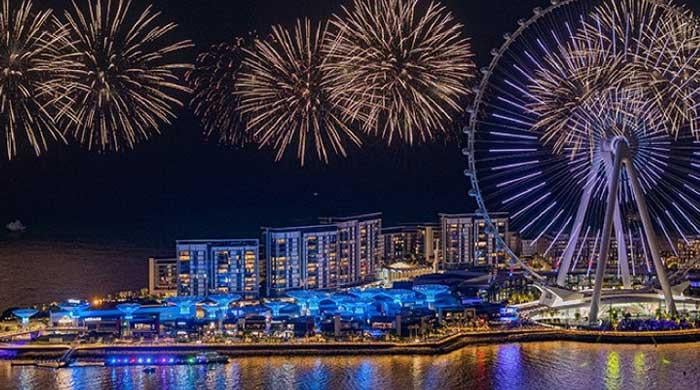
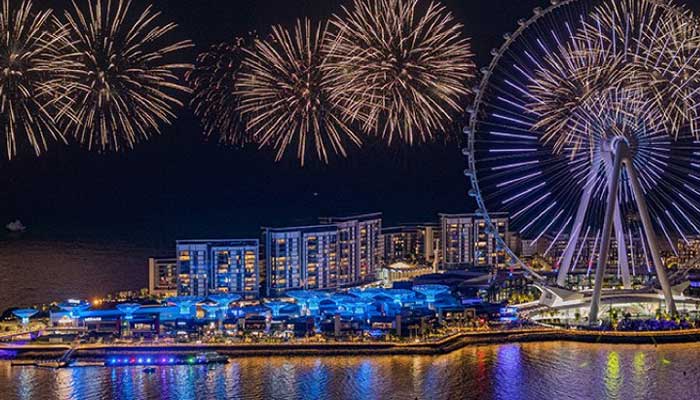
DUBAI: As the countdown to 2026 begins, Dubai is preparing to light up the sky with an awe-inspiring spectacle of fireworks.
In a celebration set to captivate the world, Dubai will host 48 dazzling fireworks displays across 40 iconic locations.
From the towering Burj Khalifa to the stunning Palm Jumeirah, Dubai is set to ring in the New Year with a glittering display that promises to leave spectators breathless.
The Dubai authorities have announced the list of key locations where the celebrations will take place.
The main venues include iconic landmarks such as:
- Burj Khalifa
- Dubai Frame
- The World Islands
- Dubai Festival City
- Burj Al Arab
- Palm Jumeirah
- Dubai Creek Harbour
- Global Village
- Al Seef
- Hatta
- Bluewaters
In addition, fireworks displays are also set to take place in Abu Dhabi, Sharjah, and Ras Al Khaimah, with over ten locations across these emirates also joining the celebrations.
Earlier, it was reported that the Dubai Mall was also set to dazzle with a spectacular light display to complement the grand fireworks at the Burj Khalifa.
Mohammed Al Abbar, the Emirati businessman whose construction company built the world’s tallest building, the Burj Khalifa, and the iconic Dubai Mall, is personally supervising the preparations for this year’s New Year’s Eve celebration.
-
Sports1 week ago
Alabama turned Oklahoma’s College Football Playoff dream into a nightmare
-

 Entertainment1 week ago
Entertainment1 week agoRare look inside the secret LEGO Museum reveals the system behind a toy giant’s remarkable longevity
-
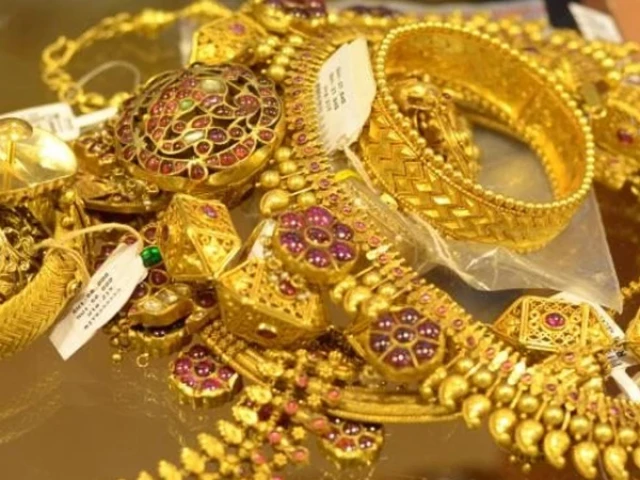
 Business1 week ago
Business1 week agoGold prices in Pakistan Today – December 20, 2025 | The Express Tribune
-
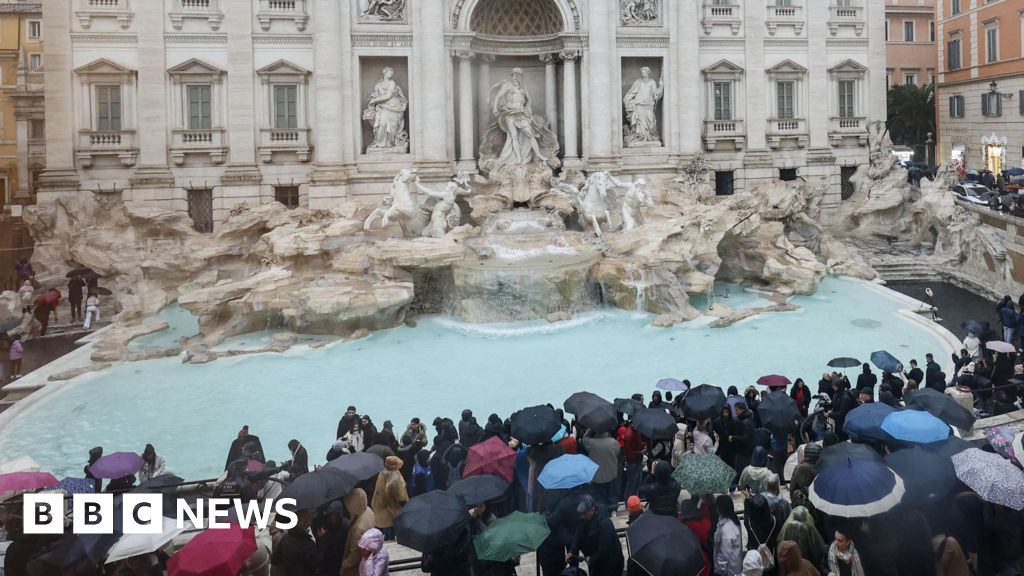
 Business1 week ago
Business1 week agoRome: Tourists to face €2 fee to get near Trevi Fountain
-

 Entertainment1 week ago
Entertainment1 week agoIndia drops Shubman Gill from T20 World Cup squad
-

 Entertainment1 week ago
Entertainment1 week agoZoe Kravitz teases fans with ring in wedding finger
-

 Tech1 week ago
Tech1 week agoWe Tried and Tested the Best Gifts for Plant Lovers With Our Own Green Thumbs
-

 Fashion1 week ago
Fashion1 week agoColumbia launches star-studded US Curling team uniforms for 2026






